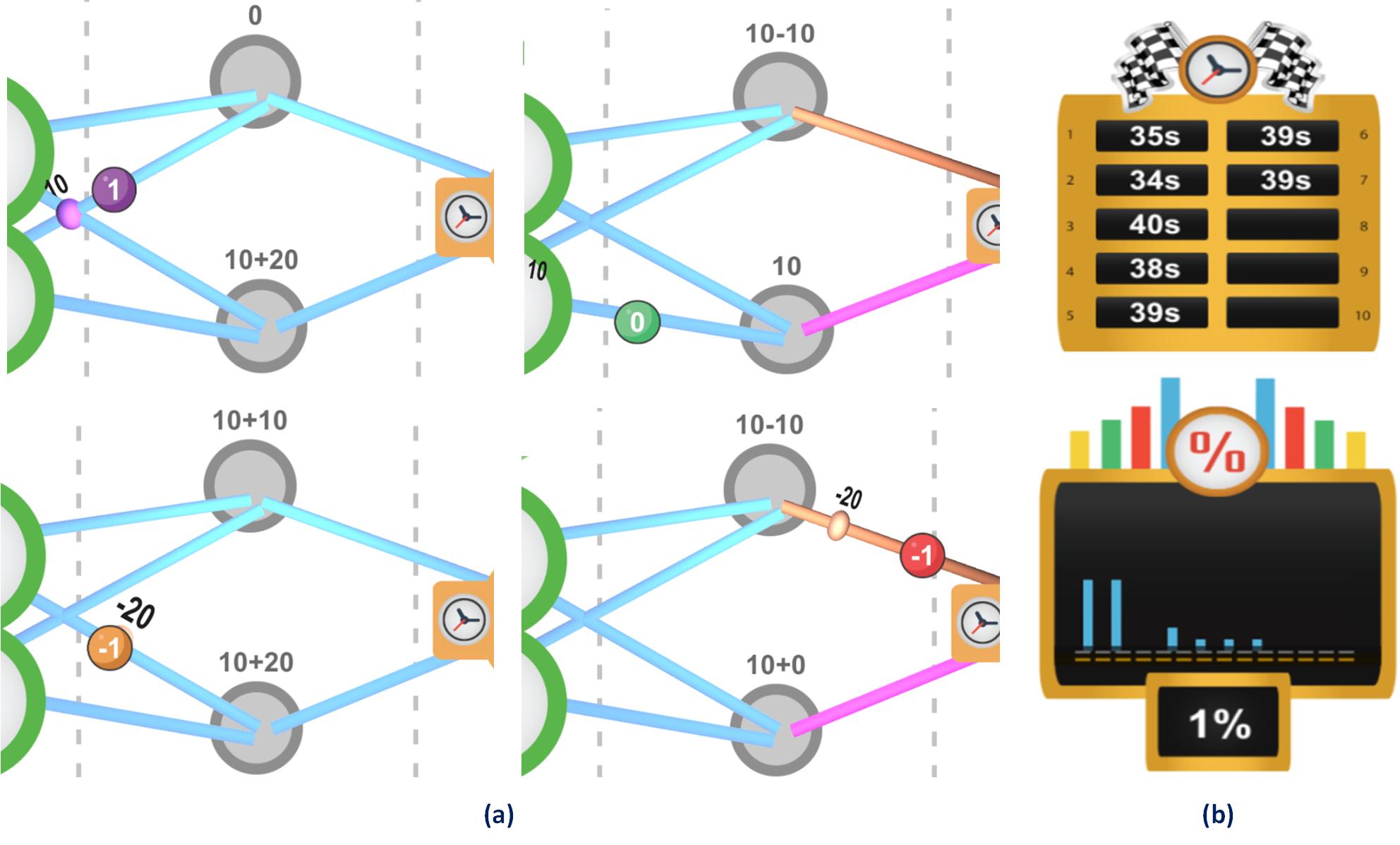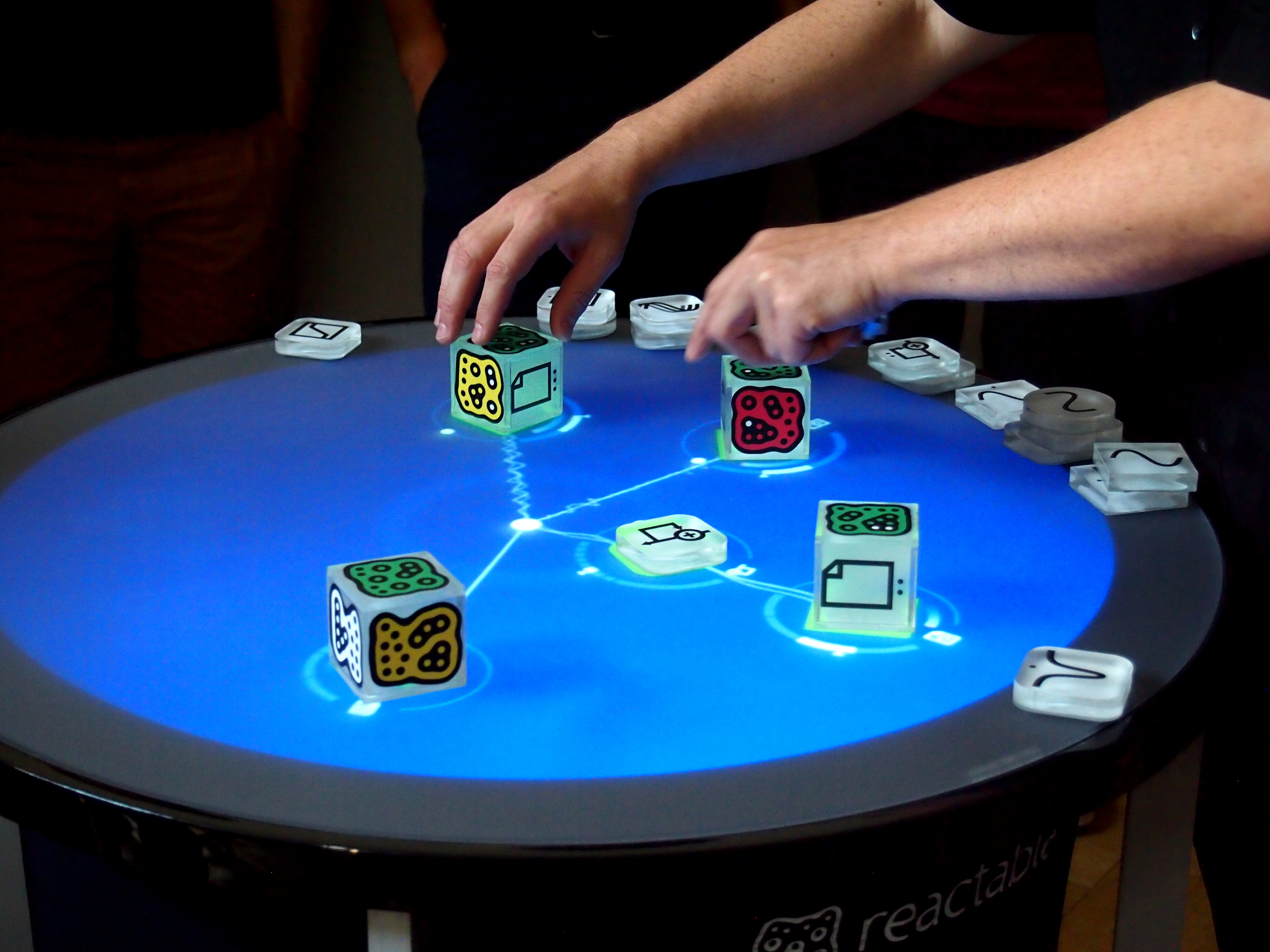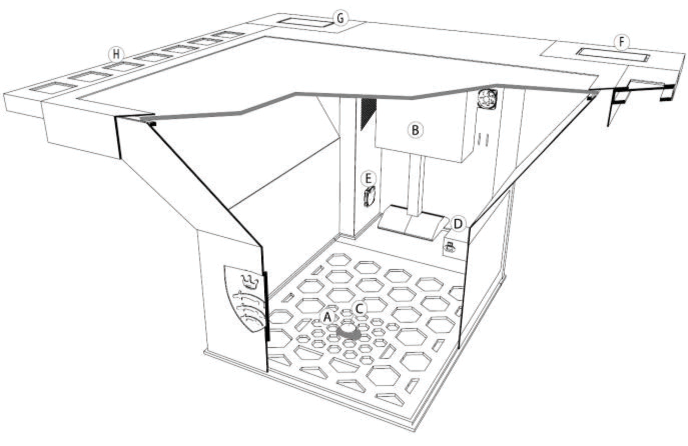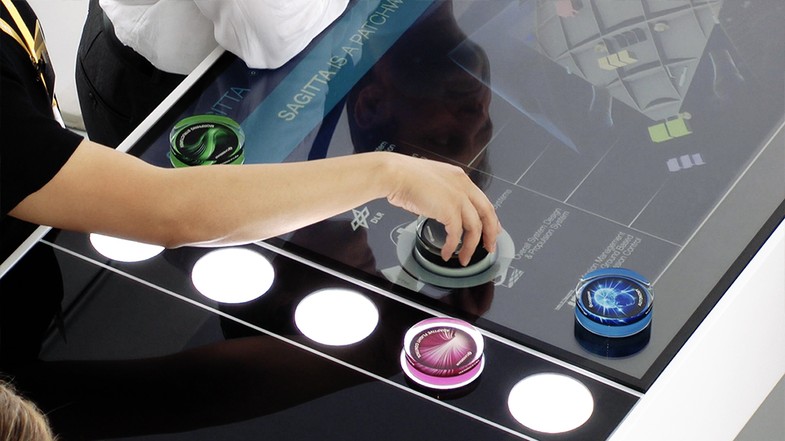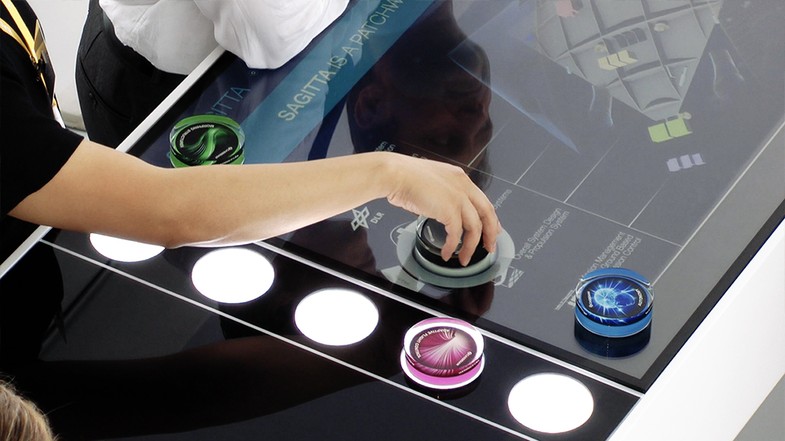About Dr. Serengul Smith
Serengul Smith currently works at the Department of Computer Science, Middlesex University, UK. Serengul does research in Artificial Neural Network, Data Mining and Artificial Intelligence. Their current project is `TUI in higher education, Educational technologies, modelling supply chains`.
Projects
Exposing Knowledge: Providing a Real-Time View of the Domain Under Study for Students
Dr. Serengul Smith
Publication
With the amount of information that exists online, it is impossible for a student to find relevant information or stay focused on the domain under study. Research showed that search engines have deficiencies that might prevent students from finding relevant information. In this research, we are proposing a solution that takes the personal search history of a student into consideration and provides a holistic view of the domain under study. A bag-of-words for each searched keyword is created and used to query third-party APIs to find relevant papers and construct a Word Cloud. To archive this we built a user interface to present the aggregated results to the student. In order to evaluate our approach, we used some of the commonly used datasets and compared our results to existing research
Read More...
An Active Tangible User Interface Framework for Teaching and Learning Artificial Intelligence
Dr. Serengul Smith
Publication
Interactive and tangible computing platforms have garnered increased interest in the pursuit of embedding active learning pedagogies within curricula through educational technologies. Whilst Tangible User Interface (TUI) systems have successfully been developed to edutain children in various research, TUI architectures have seen limited deployment in more complex and abstract domains. In light of these limitations, this paper proposes an active TUI framework that addresses the challenges experienced in teaching and learning artificial intelligence (AI) within higher educational institutions. The proposal extends an aptly designed tabletop TUI architecture with the novel interactive paradigm of active tangible manipulatives to provide a more engaging and effective user interaction. The paper describes the deployment of the proposed TUI framework within an undergraduate laboratory session to aid in the teaching and learning of artificial neural networks. The experiment is assessed against currently adopted educational computer software and the obtained results highlight the potential of the proposed TUI framework to augment students gain in knowledge and understanding of abstracted threshold concepts in higher education.
Read More...
Enabling the Effective Teaching and Learning of Advanced Robotics in Higher Education using an Active TUI Framework
Dr. Serengul Smith
Publication
This paper presents a tangible user interface (TUI) architecture to help mitigate the educational difficulties in teaching and learning abstract and complex concepts in Software Engineering and Robotics. The tailored design and development of this innovative framework address the unique challenges faced in higher education to actively engage students in technical concepts required to develop smart knowledge infrastructures. The novel integration of active tangible components on TUI tabletop architectures is presented within this paper and evaluated for its effectiveness as an educational technology to explain Robot Operating System (ROS) based sensor network topologies. Analysis of assessed results highlight the aptness and effectiveness of the proposed TUI framework in delivering a knowledge gain of 14.6% over traditional educational technologies. This illustrates the aptness and suitability of integrating tangible technology for abstracted software and robotic engineering concepts within higher educational institutions.
Read More...
The Application of Tangible User Interfaces for Teaching and Learning in Higher Education
Dr. Serengul Smith
Publication
The proliferation of smartphone and tablet technology has seen consumers opting to move further away from the classical interaction notions of keyboards and mice, and closer towards physical interactions using their fingers (Ozkan & Gokalp-Yavuz, 2015). Furthering this drive, Tangible User Interfaces (TUI)s present an augmented interaction domain whereby real-life physical objects are used to interact and manipulate digital information (Ullmer, et al., 2005; Ullmer & Ishii, 2001). This inherent ability to interplay between the physical and digital domains makes TUI systems even more intuitive and thus has gathered interest for application in numerous domains.
Read More...
Teaching and Learning Queueing Theory Concepts using Tangible User Interfaces
Dr. Serengul Smith
Publication
Tangible User Interfaces (TUI) have emerged in the past years as effective computing platforms that intertwine digital information and visualization with physical interactivity. Whilst successfully capitalizing on these properties within primary education to engage and educate children in an entertaining manner, TUI systems have seen limited deployment in more complex scenarios. To this end, this paper investigates the aptness and effectiveness of implementing TUI systems to enhance teaching and learning within higher educational institutes in order to aid the understanding of complex and abstract concepts. The proposal augments mere simulation processes by developing a table-top architecture to allow the realtime interaction and visualization of queuing theory concepts. The paper describes the deployment of the TUI framework within an undergraduate computer networks degree whereby the quantitative effectiveness of this system is assessed from a teaching and learning perspective within an engineering pedagogy.
Read More...
A Tangible Approach to Teaching and Learning Search-Space Concepts in Higher Education
Dr. Serengul Smith
Publication
The teaching and learning of artificial intelligence (AI) concepts has proliferated in higher education institutions (HEI) as AI research is ubiquitously integrated amongst different courses. Whilst computer-based approaches have often helped in delivering these educational topics, the foundational notions of search-spaces still pose a challenging threshold concept
Read More...
Designing a Table-Top Tangible User Interface System for Higher Education
Dr. Serengul Smith
Publication
Tangible User Interfaces (TUI) have garnered significant interest in the past years as a potential solution to embed smarter technologies for education. The intrinsic ability of this technology to engage and intrigue students in active learning pedagogies has recently been successfully proven across all ages using various techniques. Predominantly amongst the effective technologies, has been the development of tabletop approaches. However, these have mostly been bespoke implementations that lack proper formalisation. To this end, this paper construes the requirements to successfully implement TUI technology within higher educational contexts and proposes the design considerations for the smart adaptation of this technology. Following the implementation of the proposed smart system, the developed TUI design was evaluated within an undergraduate university programme for its effectiveness in teaching and learning object-oriented concepts. The obtained results illustrate a significant enhancement of student-experience during utilisation of such technology and quantitively outline the designs potentiation to convey complex concepts in higher education. Detailed blueprints of the proposed architecture are openly available on: http://itc.mdx.edu.mt.
Read More...
The Aptness of Tangible User Interfaces for Explaining Abstract Computer Network Principles
Dr. Serengul Smith
Publication
The technological deployment of Tangible User Interfaces (TUI) with their intrinsic ability to interlink the physical and digital domains, have steadily gained interest within the educational sector. As a concrete example of Reality Based Interaction, such digital manipulatives have been successfully implemented in the past years to introduce scientific and engineering concepts at earlier stages throughout the educational cycle. With difference to literature, this research investigates the suitability and effectiveness of implementing a TUI system to enhance the learning experience in a higher education environment. The proposal targets the understanding of advanced computer networking principles by the deployment of an interactive table-top system. Beyond the mere simulation and modelling of networking topologies, the design presents students the ability to directly interact with and visualise the protocol execution, hence augmenting their ability to understand the abstract nature of such algorithms. Following deployment of the proposed innovate prototype within the delivery of a university undergraduate programme, the quantitative effectiveness of this novel methodology will be assessed from both a teaching and learning perspective on its ability to convey the abstract notions of computer network principles.
Read More...
TangiBoard: A toolkit to reduce the implementation burden of Tangible User Interfaces in education
Dr. Serengul Smith
Publication
The use of Tangible User Interfaces (TUI) as an educational technology has gained sustained interest over the years with common agreement on its innate ability to engage and intrigue students in active-learning pedagogies. Whilst encouraging results have been obtained in research, the widespread adoption of TUI architectures is still hindered by a myriad of implementation burdens imposed by current toolkits. To this end, this paper presents an innovative TUI toolkit: TangiBoard, which enables the deployment of an interactive TUI system using low-cost, and presently available educational technology. Apart from curtailing setup costs and technical expertise required for adopting TUI systems, the toolkit provides an application framework to facilitate system calibration and development integration with GUI applications. This is enabled by a robust computer vision application that tracks a contributed passive marker set providing a range of tangible interactions to TUI frameworks. The effectiveness of this toolkit was evaluated by computer systems developers with respect to alternate toolkits for TUI design. Open-source versions of the TangiBoard toolkit together with marker sets are provided online through research license
Read More...
Bridging the digital divide for e-learning students through adaptive VLEs
Dr. Serengul Smith
Publication
Virtual Learning Environments (VLEs) are required to be highly effective and easy to use as they serve as the primary institutional portal between students and academics. There are currently a number of challenges that are caused due to the modernized digital divide, with a significant limitation being the inability of information systems to adapt to the users technological platform, broadband quality and device in use to access the online system. This paper focuses on the limitations that students encounter when accessing VLEs within Higher Educational Institutes (HEIs). This research aims to primarily review and provide critical analysis of current VLE frameworks, as well as assess restrictions based on several demographics including content adaptation and technical aspects. An algorithmic system is developed to analyze students individualistic needs, undertake adaption and personalization of the VLE, and hence ensure consistent and efficient access to academic web resources and functionalities
Read More...
Mitigating the Digital Divide for Distance Learning Students in Developing Countries
Dr. Serengul Smith
Publication
This project will focus on the limitations distance learning students encounter when they are required to access virtual learning environments (VLEs) from developing countries. Ideally, every student accessing a VLE should share the same experience regardless of their geographical location or broadband connectivity strength. Currently, the main limitation is the ability of information systems to adapt to the users depending on their technological platform, broadband quality and geographical location.
Read More...
Explaining multi-threaded task scheduling using tangible user interfaces in higher educational contexts
Dr. Serengul Smith
Publication
Endorsing the advantages of computer-based interaction within the educational domain, this study analysis the potential for tangible interactive technology to mitigate the challenges faced by higher educational institutes in explaining abstracted technical concepts. Implemented within a novel within the educational domain, this paper evaluates the efficacy of adopting a tangible user interface (TUI) to aid in the conceptual understanding of multi-threaded task scheduling and programming by undergraduate IT students. Making use of physical object representations, a description is provided for the distinctive development of a collaborative system that allows students to interact with and visualize the scheduling of multiple software threads onto a computer processes. The paper quantitatively studies the usefulness of the proposed TUI system with respect to traditional lectures by deploying the system within a university computing degree. Evaluation analysis of the obtained results highlight a significant improvement in the students abilities to grasp the abstract and complex notions of multi-threading, thus validating the potential of the proposed study.
Read More...
Previous
Next
Publications
Enabling the Effective Teaching and Learning of Advanced Robotics in Higher Education using an Active TUI Framework
2017
The Application of Tangible User Interfaces for Teaching and Learning in Higher Education
2017
A Tangible Approach to Teaching and Learning Search-Space Concepts in Higher Education
2017
The Aptness of Tangible User Interfaces for Explaining Abstract Computer Network Principles
2016
Designing a Table-Top Tangible User Interface System for Higher Education
2017
Bridging the digital divide for e-learning students through adaptive VLEs
2016
Mitigating the Digital Divide for Distance Learning Students in Developing Countries
2015
Teaching and learning queueing theory concepts using Tangible User Interfaces
2016
Exposing Knowledge: Providing a Real-Time View of the Domain Under Study for Students
2019
Explaining multi-threaded task scheduling using tangible user interfaces in higher educational contexts
2017
An Active Tangible User Interface Framework for Teaching and Learning Artificial Intelligence
2018
TangiBoard: A toolkit to reduce the implementation burden of Tangible User Interfaces in education
2019



